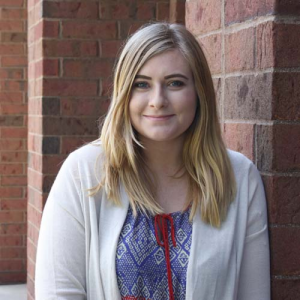How would your studies and / or your professional experiences advance the goals of WPA-GO? These goals may be found in the About Me section of WPA-GO’s website: http://wpacouncil.org/wpa-go (no more than 150 words) *
Throughout my time in graduate school, I have had the opportunity to work within my institution’s writing program, both as a Graduate Instructor and Graduate Student Mentor. These experiences will greatly support my role in WPA-GO for furthering the organization’s mission and goals. Because I have spent the previous two years in a mentoring position, I understand the immense impact that becoming or finding a mentor can have on a graduate student involved with postsecondary writing programs—not only as a form of professional development, but also as an opportunity to learn more about the field from someone who can provide insight. I view mentorship as something that must be integrated into all writing programs that employ graduate student instructors and researchers. Additionally, much of my personal research has been dedicated to giving attention to minority populations, with the goals of eliminating stereotypes and removing bias from teaching and assessment.
What kinds of support do you value as a graduate student and how would you further those forms of support for others through WPA-GO? (no more than 250 words) *
As a graduate student, I highly value any opportunity to learn from others who are at various stages in their careers in Rhetoric and Writing. From advanced doctoral students, to first-time job applications, to tenured faculty, I find it extremely important to speak with and learn from these individuals. In order to build these relationships, if elected to WPA-GO, I would help to develop additional opportunities for graduate students interested in writing program administration to network with others in the field, including fellow graduate students, faculty, and writing program directors. In a way, these relationships can create mentor-mentee relationships that are invaluable and provide experiences and knowledge that are difficult to come by through doctoral classwork alone. These opportunities may include furthering the WPA-GO social media presence, especially Twitter where many academics from around the world connect, creating a more interactive and expansive WPA-GO website, coordinating events at regional and national conferences within and beyond the field, and working directly with my own institution to support those interested in writing program administration at the MA and Ph.D. levels.
Ultimately, if elected to WPA-GO, my goals would be to further develop mentoring opportunities for graduate students interested in writing program administration, give students the opportunity to connect with others that hold the same passion, and provide space for continued conversations on writing program administrative work.
CWPA pledges to “foster inclusion more generally; promote research into student diversities; promote policies that increase diversity in our membership and in the population of people who administer writing programs; and explicitly act against the structures that cause injustice today,” and WPA-GO is dedicated to supporting this mission. How will your selection to the WPA-GO Graduate Committee advance these goals? Please answer this question by choosing one barrier you identify to meeting these goals in writing studies. How would your work within WPA-GO specifically address this barrier? (no more than 500 words) *
In consideration of barriers to meeting the goals of diversity and inclusion within writing studies and, specifically, within writing program administration, I believe it is important to think back to the keynote presentation given by Dr. Asao Inoue at CCCC 2019. Dr. Inoue spoke with my institution two years ago and presented us with new and innovative ideas for writing studies to further antiracist pedagogy and work to include all students in successful writing endeavors—no matter their background or ethnicity. This talk has continued to influence me throughout the years, and I often think back to Dr. Inoue when crafting my own assignments or development grading policies.
One barrier that can be gathered from Dr. Inoue’s publications and presentations is that there are currently policies in place that emphasize white, standard American English over other dialects, which places many of our students at a disadvantage. Not only do these students need to participate in all our “traditional” class activities, but they are additionally unfairly punished (through point deductions, extra comments/corrections) simply because they do not participate in the “standard” accepted language within their writing. This is something that must be addressed if we hope to foster diversity and inclusion within the field of writing studies and, ultimately, practice an antiracist pedagogy in our classrooms and writing programs. To go about this, it is important that we continue the work that WPA-GO has begun, including recruiting graduate students from underrepresented institutions and underrepresented populations to participate within the organization and share their voice and perspective on these important issues. Additionally, the idea of inclusion must continually be discussed and expanded to ensure that all populations are represented within the organization.
To go about challenging these policies that emphasize standard American English, it is important that a position statement is drafted regarding the negative impact of harmful policies on students, both academically and personally. By looking at the policies of organizations in the field and institutions that host both writing programs and graduate-level English degrees that produce graduate instructors, WPA-GO can identify areas that need further consideration, consult relevant literature and experts within the field, and work to draft a position statement that can serve as a standard within the field for antiracist policies within writing programs. This statement might address methods of creating antiracist grading policies, placement processes, and assignments.
Moving forward, it is important that we continue to invest our time and efforts into such questions and topics in order to ensure a positive experience for all postsecondary students, no matter their race, ethnicity, gender, or age.
